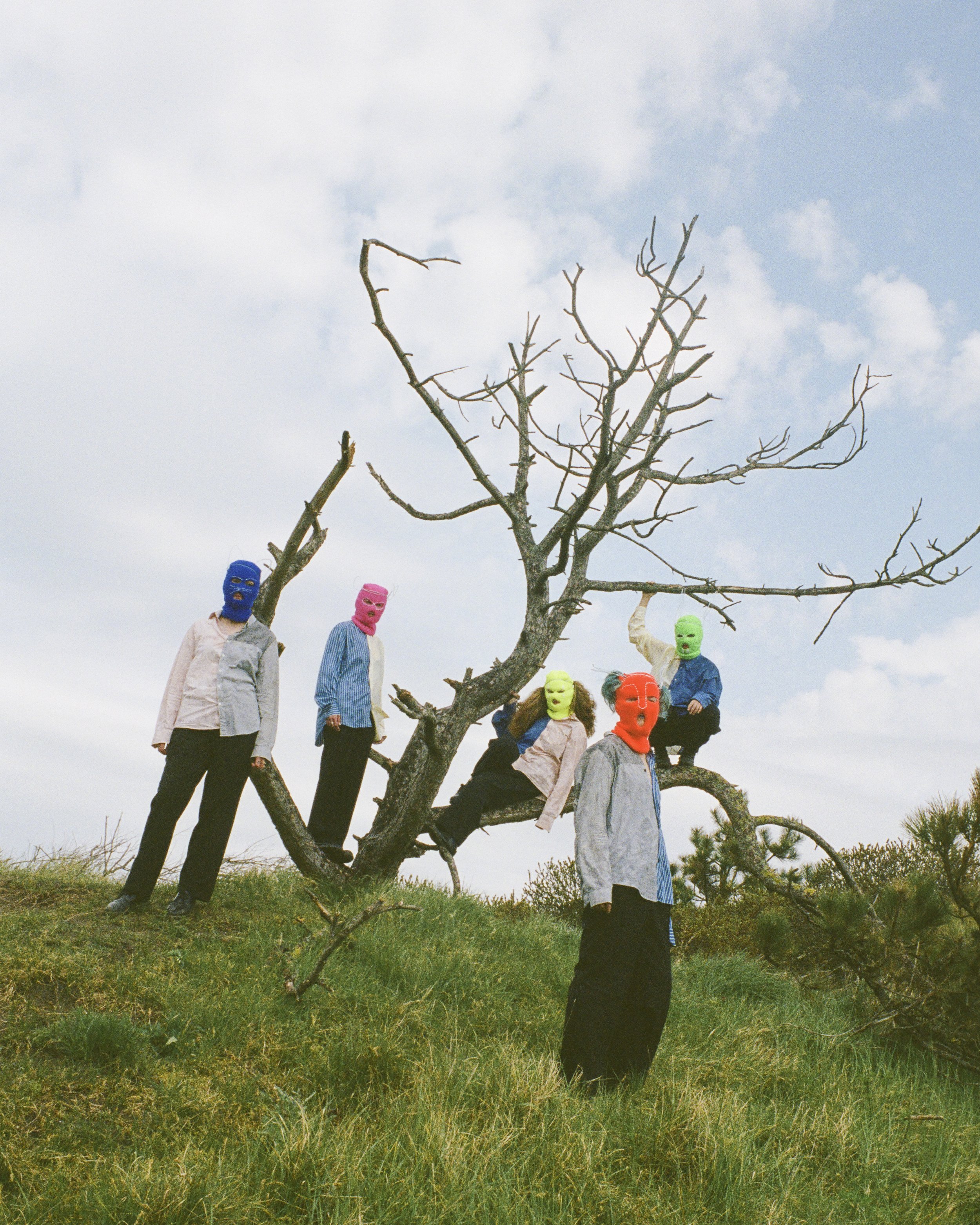AC: How did joining the Montreal DIY scene been for you creatively? In terms of possibilities for collaboration or any new influences you had during this time?
KV: The first bit was really hard because I didn't have any contacts when I first moved here. It was obviously a huge leap and didn't happen really quickly, but with the creation of this album I ended up meeting some other people who also came from Calgary. [One of them] happened to be working in a studio - Rena Kozak, the producer of the album. I hadn't worked with a female producer before, so I was really excited to collaborate with someone who wasn't a guy - for reasons like I mentioned before. I play music with a bunch of guys still, and I love them, but it's really nice just to have somebody else around. She really helped me get the most out of what I was doing.
Now I share a studio space, like a co-op studio space, with some people who run a label called Baby Horse Records. They're all friends of mine, they're all musicians, and they're all super talented.
I've been welcomed by two different groups and I'm very much in love with both of them - I'm very lucky. This is a really good time to ask me that question because I feel very full and accepted - and lucky.
AC: I've been like rethinking my relationships with people lately and have been really mindful and appreciative of the support and sense of community I feel.
I heard that the title of your album Daffodil 11 is from Vonnegut's Slapstick - which also ties into the whole idea of community building. Was that on your mind when you were writing the songs?
KV: Slapstick is my favorite book and Vonnegut is my favorite author. I've read almost all of his works and I'm trying to collect the last few books. Yeah, Slapstick was heavy on my mind. I actually have a tattoo that's also in part because of [that book]. It was the perfect thing for me to read when I started letting the voices of adulthood come in and say, "There needs to be a good outcome for a good deed to mean anything."
The idea of doing something fully and authentically, without attachment to the outcome - just because it's the decent human thing to do - really speaks to me. That was really heavy on my heart when I was making the album and is still. Hopefully it will be forever because I think it's an important virtue.
AC: You mentioned that you sometimes perform in drag and that you are gender fluid. Can you talk about expressing your identity as an artist - do your drag performances ever reflect your day-to-day experience?
KV: I flip-flop around, it so depends on how I feel when I wake up in the morning. Clothes are very important to me because they're me expressing myself and how I feel every day. I'm sure that I'm also really vain. I'm sure that's a thing too, but I like to think it's because I'm just an expressive person. So I'll just love myself - I'll keep that lie (laughs) .
I definitely have boy days and girl days and I think it's pretty obvious to anyone who's around me a lot - because my whole demeanor changes a little bit.
I like Carl Jung a lot because he also always speaks of having two sides to himself - the scientist and the spiritualist. There's always this duality within him and I've always felt that duality within myself. I grew up in a pretty religious setting that had some serious, hardcore gender roles imposed. So luckily my family is really cool and loving, but there's still a lot of me decluttering all those experiences.
I definitely take advantage of that in art because. I mean the best part about - well not the best part, but the best superficial part, I suppose - about being an artist is that you get to play dress-up and nobody really cares. Which, in Montreal, is not as big of a deal because people are very expressive with the way they dress anyway.
Coming from a super small, super conservative, really just prairie town Alberta, the whole idea of playing dress-up is a much bigger deal. I guess the duality is an everyday experience - and that's totally normal. In terms of dressing up in drag, it's only for performances, as like with who you are as an artist.

































![Still from CHINESE AMERICAN BEAR - 好吗 (Hao Ma) [Official Music Video]](https://images.squarespace-cdn.com/content/v1/5da4c68a227a253ac912f3a7/1622174711447-JA7UM0CWABBD4NOCS7AV/Screen+Shot+2021-05-28+at+12.05.06+AM.png)
![Still from CHINESE AMERICAN BEAR - 好吗 (Hao Ma) [Official Music Video]](https://images.squarespace-cdn.com/content/v1/5da4c68a227a253ac912f3a7/1622174896425-216R0UJG7NA2D1CV5VV3/Screen+Shot+2021-05-28+at+12.07.21+AM.png)


